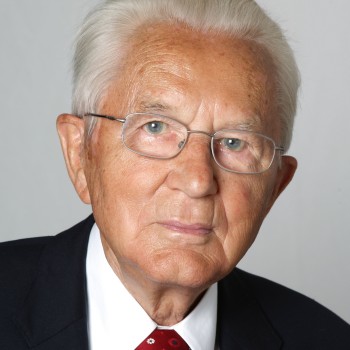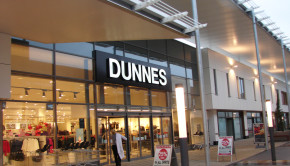Aldi founder dies and Tesco introduces new CEO

Fionnuala Carolan reflects on how new Tesco CEO Dave Lewis could learn a lot from Aldi founder Karl Albrecht's example
13 August 2014
Two major things happened in the world of grocery retailing in the past month. Firstly it was announced that Karl Albrecht, Aldi’s founder, passed away on 16 July at the age of 94. According to a statement issued by Aldi Ireland, Albrecht “had a strong belief that everyone should be able to consume high-quality food and beverages at the lowest possible prices. He devoted his life to making this belief a reality.” What a remarkable man to have had such a seemingly unrealistic vision and yet he saw it through to fruition. It has resulted in bringing huge change to the grocery market across the whole of Europe and beyond.
The second major piece of news this month, was the ousting of CEO Philip Clarke by Tesco. Like Albrecht, Clarke devoted his life to a retail brand and worked tirelessly to try to make it succeed but unfortunately for Clarke his legacy will be quite different to that of Albrecht’s.
Clarke was a lifer, joining the company straight from university. On 21 July his career ended rather brutally. After 40 years of service and three and a half years as CEO, the board of Tesco decided his time was up and they needed some new blood in the company to attempt to turn things around after a number of successive profit warnings.
While Clarke may not have succeeded in salvaging Tesco’s falling profits, no one can say that he didn’t try. His timing of becoming CEO was probably unfortunate. Apart from taking over from the revered Sir Terry Leahy who had driven the company to new heights in a golden age, the market was changing irrevocably, with the recession still lingering, resulting in consumers becoming ever much more prudent and less loyal.
It was thought that Tesco did not react quickly enough to implement change in a new market.
Clarke tried everything to turn Tesco’s fortunes around but it might have been too little too late. In September 2011 he introduced The Big Price Drop, later dubbed the Big Price Flop. The retailer invested £500 million in slashing prices and kicked off a price war in the lead up to Christmas. Despite this Tesco was forced to announce its first profit warning in 20 years in January 2012. Shares fell by 15% or more than £4 billion.
Clarke and his team went back to the drawing board and by April 2012 he announced a £1 billion turnaround plan, which was to involve a huge refurbishment of its UK stores and a company-wide training programme. This is still a work in progress and Clarke was surely hoping to see this through to the end.
However the horsemeat scandal in January 2013 was another major blow to the company, when its beef burgers turned out to be partial horse burgers. As a result frozen food sales dropped by £14 million overnight. Aside from the bad news at home, Tesco failed to break the US market. The company was forced to sell its US business Fresh & Easy last year, which ended up being a hugely expensive experiment for the brand in the end.
The bad news kept coming and in April this year the retailer announced the second year in a row of falling profits, with UK like-for-like sales down 1.3% and group profit down £3.3 billion.
Clarke tried drastic action after drastic action but nothing seemed to do the trick. He focused on price but Aldi and Lidl were doing it better. While Tesco might have offered a nicer shopping environment than Aldi and Lidl, it wasn’t as nice as M&S or Waitrose. Tesco has been stuck in no-man’s land and Clarke, no matter how hard he tried, couldn’t find a way out.
The new CEO has been named as Dave Lewis, currently global president of Unilever’s personal care division and the first CEO to ever be recruited from outside the company. Whether he will have any more success than Clarke is anyone’s guess. He will be allowed a period of grace but if the numbers are not right, he will come under considerable pressure pretty quickly. He could probably do with a little bit of Karl Albrecht’s foresight and ambition in order to manage this brief. We can only wish him luck.
Fionnuala Carolan
Editor



 Print
Print





Fans 0
Followers